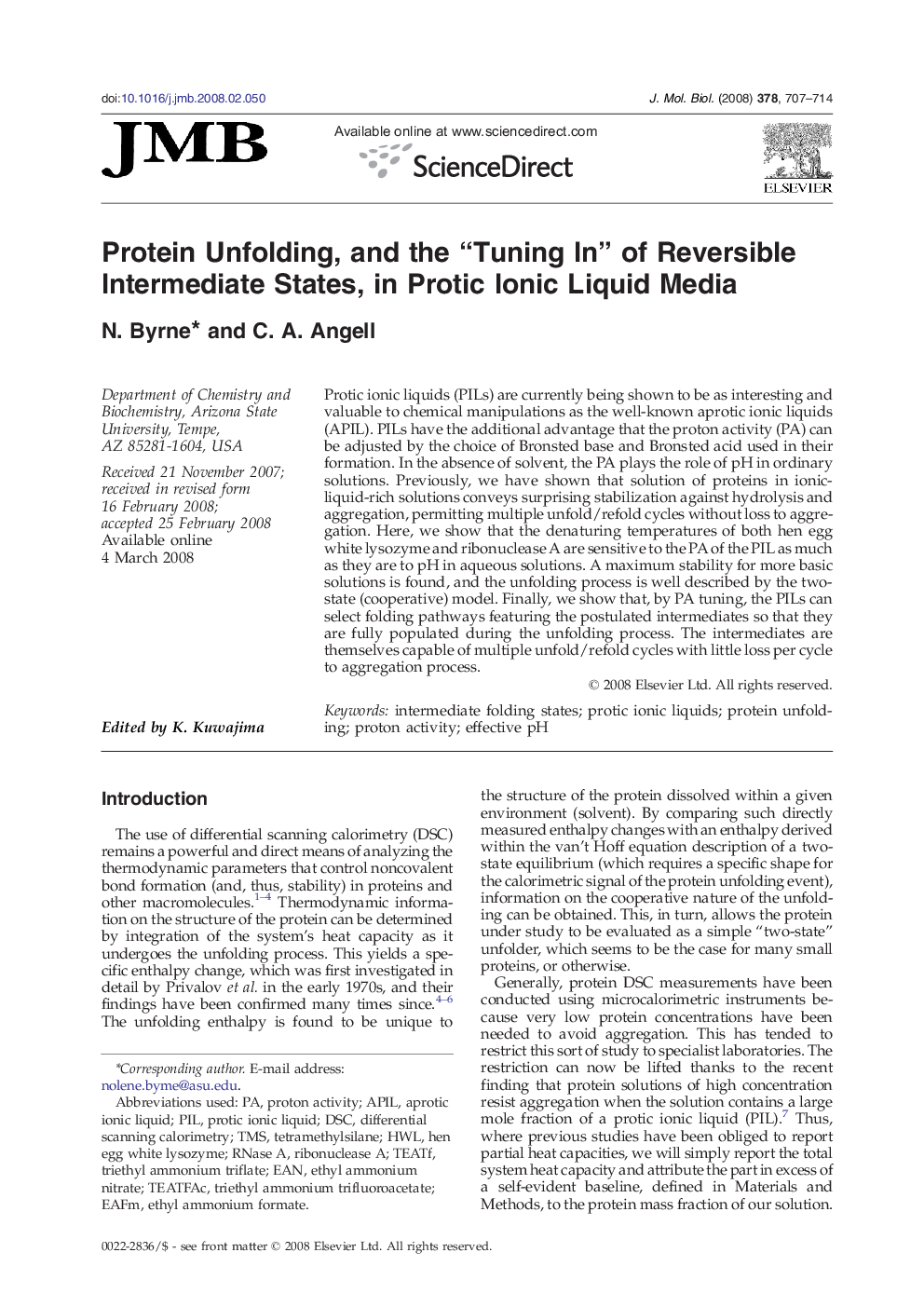| Article ID | Journal | Published Year | Pages | File Type |
|---|---|---|---|---|
| 2187699 | Journal of Molecular Biology | 2008 | 8 Pages |
Protic ionic liquids (PILs) are currently being shown to be as interesting and valuable to chemical manipulations as the well-known aprotic ionic liquids (APIL). PILs have the additional advantage that the proton activity (PA) can be adjusted by the choice of Bronsted base and Bronsted acid used in their formation. In the absence of solvent, the PA plays the role of pH in ordinary solutions. Previously, we have shown that solution of proteins in ionic-liquid-rich solutions conveys surprising stabilization against hydrolysis and aggregation, permitting multiple unfold/refold cycles without loss to aggregation. Here, we show that the denaturing temperatures of both hen egg white lysozyme and ribonuclease A are sensitive to the PA of the PIL as much as they are to pH in aqueous solutions. A maximum stability for more basic solutions is found, and the unfolding process is well described by the two-state (cooperative) model. Finally, we show that, by PA tuning, the PILs can select folding pathways featuring the postulated intermediates so that they are fully populated during the unfolding process. The intermediates are themselves capable of multiple unfold/refold cycles with little loss per cycle to aggregation process.
